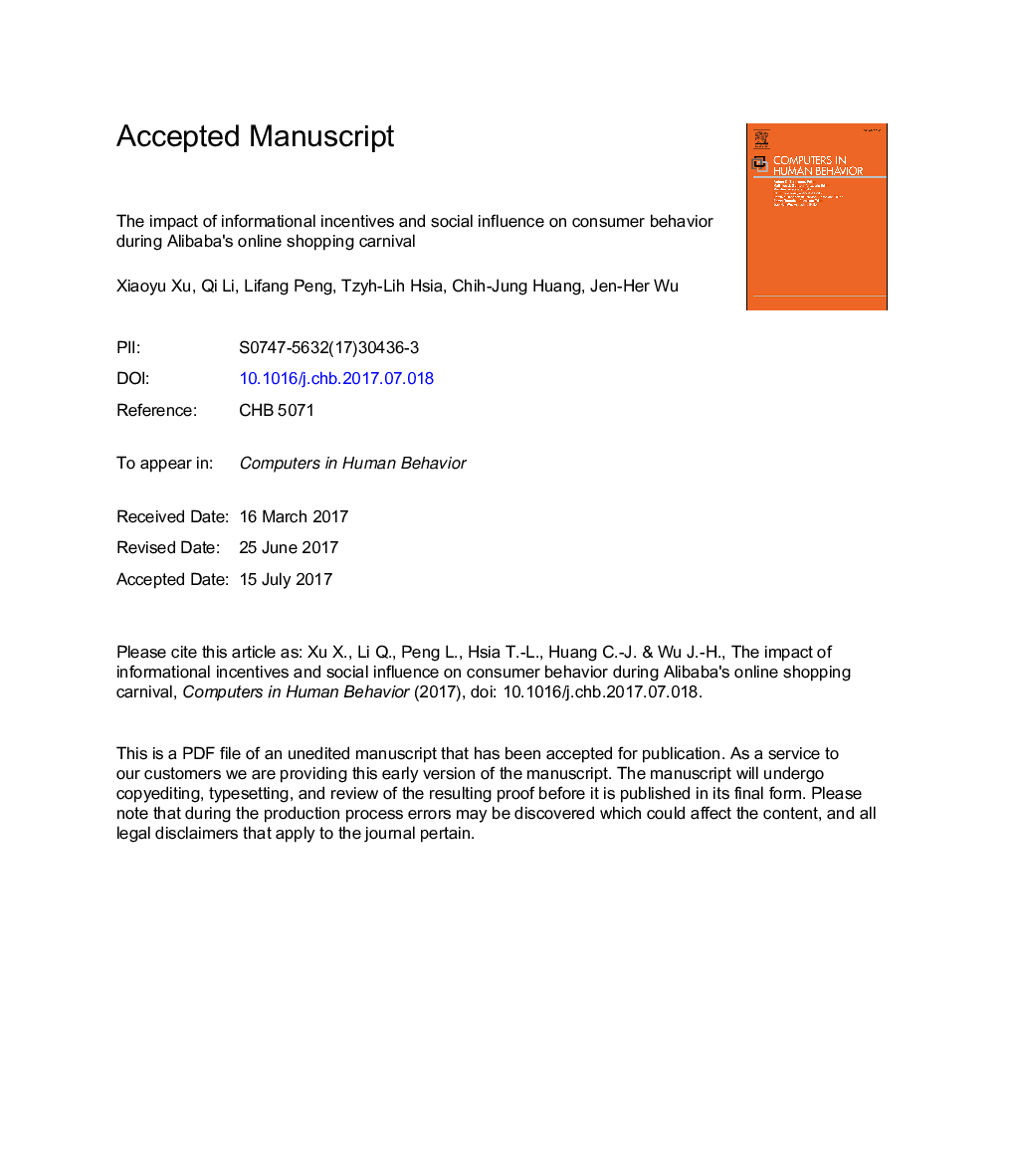| Article ID | Journal | Published Year | Pages | File Type |
|---|---|---|---|---|
| 4937423 | Computers in Human Behavior | 2017 | 27 Pages |
Abstract
Alibaba's annual global online shopping carnival (OSC) held every November 11 (also known as Double 11 Day or Single's Day) is well known for being the most successful and largest online promotion campaign since its Chinese debut in 2009. We have witnessed the power of online herd behavior exhibited by a frenzy of consumers purchasing, sharing and interacting with each other during Alibaba's global OSC. This shopping carnival brought the entire Chinese electronic commerce industry an astonishing record volume of transactions worth 120.7 billion RMB and 1.04 billion transactions on Singles' Day in 2016. This study explores what facilitates consumer OSC behavior on Singles' Day. Drawing upon carnival theory and herd behavior, we develop an explanatory model to explain how informational incentives and social influence affect OSC consumer behavior. Data gathered from a large-scale online survey of consumers that participated during the Singles' Day period is used to test the model. The conceptual model was validated using the partial least squares (PLS) technique. The empirical results show that (1) participation, interaction and pleasure together define OSC consumer behavior; (2) informational incentives and social influence are two crucial preconditions for OSC consumer behavior. The results provide good support for the proposed research model and hypotheses and yield interesting insights about the important roles of informational incentives and social influence collectively facilitating OSC consumer behavior during the Singles' Day period in China.
Keywords
Related Topics
Physical Sciences and Engineering
Computer Science
Computer Science Applications
Authors
Xiaoyu Xu, Qi Li, Lifang Peng, Tzyh-Lih Hsia, Chih-Jung Huang, Jen-Her Wu,
